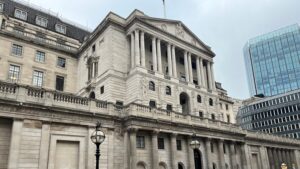Advisers who have put retirees into portfolios featuring the Woodford Equity Income fund face a decumulation “nightmare” as the fund remains suspended for the foreseeable future.
While the fund continues to make distribution payments to income shareholders, anyone selling down units in Woodford Equity Income as part of regular withdrawals faces a choice between reducing their income or facing “irreparable damage” to their portfolio.
“If any adviser holds a suspended fund in the portfolio, that portfolio becomes a nightmare to manage,” says Finalytiq director Abraham Okusanya. “They can’t trade the fund, which means they can’t rebalance the portfolio and this may well screw up their asset allocation. Ask anyone who held physical property funds when those funds were shut.”
Woodford Equity Income regularly topped D2C platforms’ most-bought funds, while most advised platforms contacted by Portfolio Adviser said between 3.5% and 5% of portfolios were exposed to the suspended fund.
“I’ll imagine Woodford Equity Income funds is pretty popular in drawdown portfolios, particularly where the adviser is targeting natural yield – a largely pointless task in itself,” says Okusanya, in reference to fluctuating coupons and dividends that once adjusted for inflation may not be able to keep up with spending needs.
Few investors able to live off natural income
However, for investors taking natural yield, the fund is continuing its quarterly payments with the first payment post the fund’s suspension on 3 June taking place at the end of August. Investors are set to receive between 1.1241p and 1.1438p per share, depending on share class, according to the Woodford website.
The 12-month yield on Woodford Equity Income was 3.31% at the end of May, according to Morningstar data. On Income Focus it was 4.53%.
But the suspension bites most for investors who have to sell down parts of their portfolio to reach their income requirements.
In an article for advisers published two days after the Woodford suspension, Zurich said clients will continue to be paid their full income entitlement, which will be taken proportionately from the remaining funds in the portfolio. This would be prioritised from natural yield then available cash and “if necessary” auto-divestment.
Most retirees would fall into the latter camp, according to Dynamic Planner head of asset and risk modelling Abhi Chatterjee. “I don’t know many people who have £5m to take income off and to live off. There are far more other people in retirement having to sell down parts of their portfolio.”
Business as usual threatens ‘irreparable damage’
Advisers whose clients are exposed to the suspended fund now face tough conversations about whether they can maintain their current level of income.
“Anything that effectively accelerates the withdrawal rate means placing greater pressure on the remaining assets,” says Plan Works director Nathan Fryer.
“Add to this the very high probability of investors taking a big capital hit when Woodford Equity Income eventually resumes trading, and our advice to clients would be to reassess withdrawal rates now, rather than continue with pre-suspension withdrawals and risk causing irreparable damage to the long-term sustainability of the portfolio,” Fryer says.
Pushing investors up the risk spectrum
Tinkering with remaining funds in the portfolio to maintain existing income also presents complications.
“If the investor wants to maintain that level of income, they will either have to sell capital or they may have to take more capital risk than they intended by taking higher yielding funds,” says Master Adviser director Jim Harrison.
“If funds that are yielding 3 to 4% usually do the job, but then one gets suspended and then you’re looking for funds that yield 4.5 to 5%. Conventional wisdom tells you that you need to take more risk to achieve that.”
The fact no one knows when the fund will re-open or what it will be worth when it does makes the situation trickier, says Harrison. “Everyone will be carrying a nominal value for it but you have no idea if that is going to be realised once the fund reopens.”
Advisers seeking to dial up income do so as a decade-long hunt for yield drives investors up the risk spectrum, says Chatterjee.
“As interest rates keep getting lower, the hunt for yield just keeps on driving everything in the market. When you’re getting high yield at a 4.5% coupon with duration normally of three to five years and now it’s at eight the risk on this is getting quite hairy.”
Liquidity needs more attention in decumulation
The advice industry does not pay enough attention to liquidity in decumulation portfolios, according to GBI2 managing director Graham Bentley.
“But then fund suspensions are very rare and have historically only been associated with property funds.”
Advisers should be willing to give up some income for liquidity in decumulation portfolios, says Chatterjee, who says the profile of Woodford Equity Income when it suspended was inappropriate in such portfolios for these reasons.
“When Woodford had that 70% defensive equity in large-cap, high quality companies the Equity Income fund could definitely be in there. But the avatar it had at the end when it suspended would not work in a decumulation portfolio,” he says.
Investment trusts in decumulation
Master Adviser research published in July found a decumulation portfolio made up of investment trusts outperformed comparable portfolios made up of open-ended funds.
Harrison says the fact they don’t get suspended adds to their appeal within a decumulation portfolio. “They can stop paying a dividend and you might not like the price you get but you can at least sell it. But if you’re desperate there is a market for it.”
AIC communications director Annabel Brodie-Smith said in the cases of the Woodford and the property fund suspensions investment trust investors in decumulation would have been able to continue to sell shares to meet their financial needs.
Chatterjee says investment trusts have a role to play but he worries about premiums and discounts getting out of control, while Okusanya says he would not use closed-ended funds in a decumulation portfolio. Okusanya says: “Investment trusts may not have the same liquidity issue as Oeics or unit trusts but there are other risks from a decumulation perspective such as their tendency to gear significantly.”







